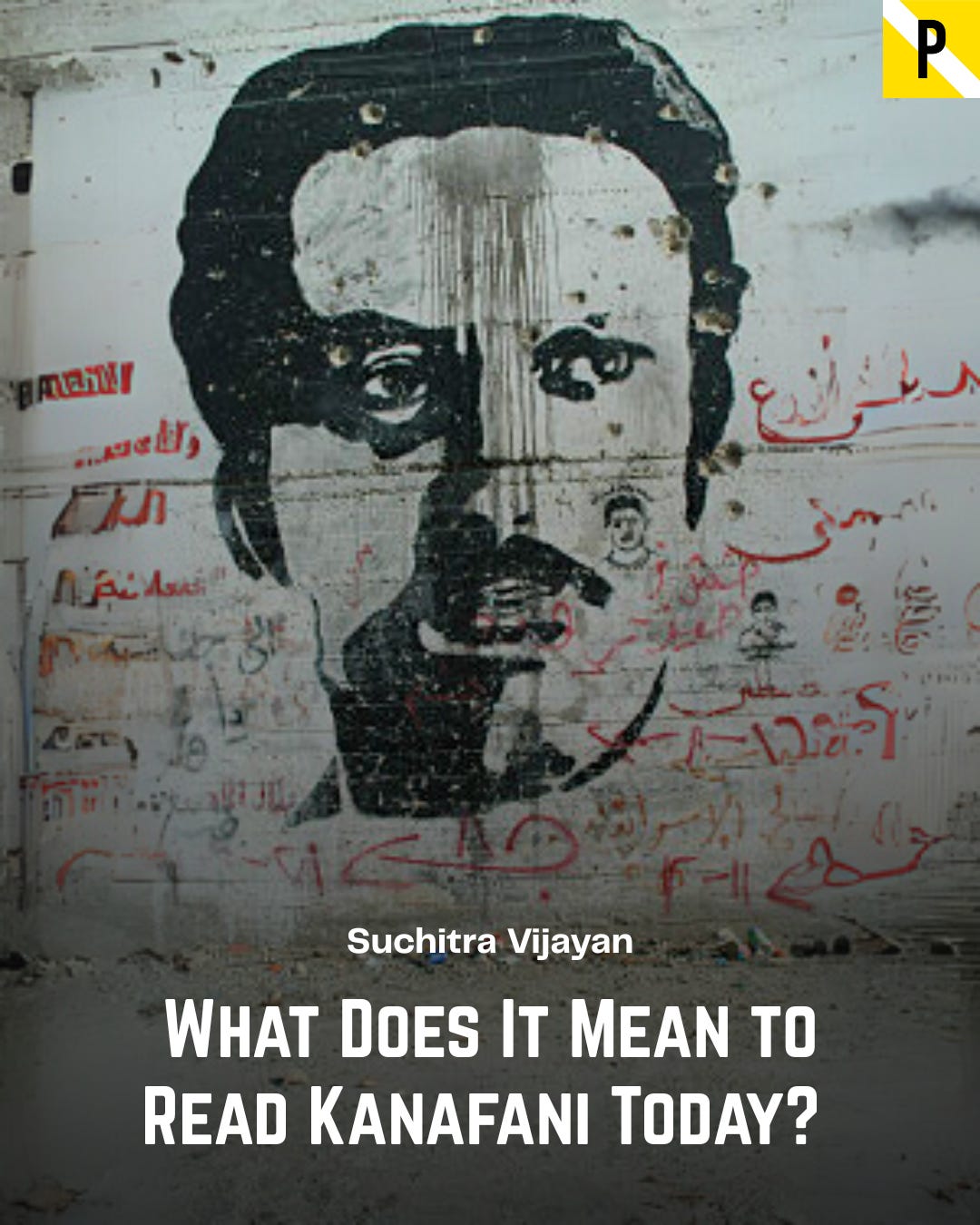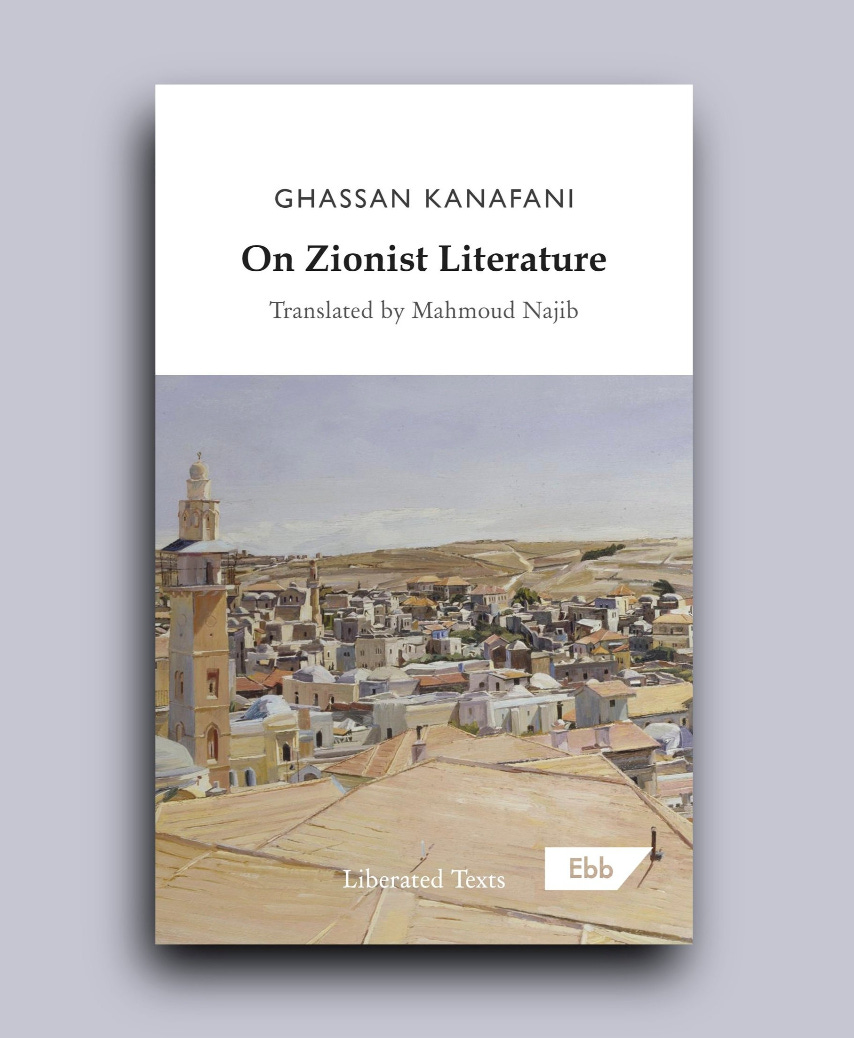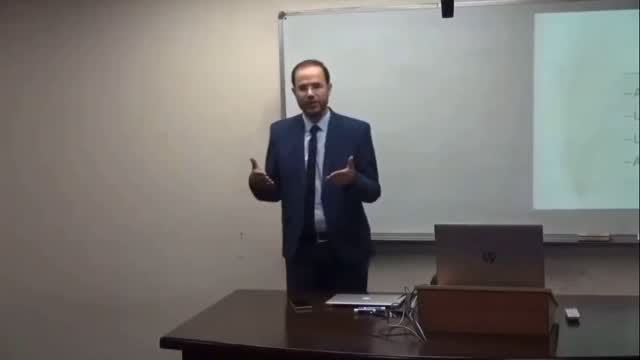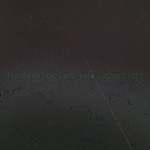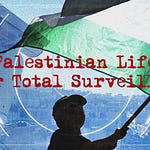On July 8, 1972, Palestinian writer, poet, and revolutionary Ghassan Kanafani was assassinated in Beirut by Mossad, the Israeli intelligence organization. Each year, we return to this date not only as an act of remembrance but also as a political reckoning. This year, as we mark the anniversary of his assassination, we do so amid a live-streamed genocide in Gaza. Zionism ended Kanafani’s life more than 50 years ago; it continues ferociously, emboldened, and exterminatory.
What does it mean to read Kanafani today?
I am not just talking about his fiction, but his allegories of displacement, the brutal, poetic clarity in his political essays, his literary criticism, and his revolutionary commitment to anti-colonial truth-telling.
What does it mean to read him while the world watches children starve, poets being bombed in their sleep, and journalists assassinated mid-sentence?
Kanafani wrote against the flattening of Palestinian life into victimhood. His voice stood in stark opposition to the liberal sentimentalism that seeks to mourn Palestine without confronting the system that is killing it.
In October 2022, I sat down with Louis Allday, historian, writer, and editor of Liberated Texts, to discuss Kanafani’s On Zionist Literature, which had been published in English for the first time that year. In July 2022, to mark the fiftieth anniversary of Ghassan Kanafani’s assassination, Liberated Texts collaborated with Ebb Books to release this first English-language translation.
Our conversation was part of the Translating Palestine series curated by Bhakti Shringarpure of the Radical Books Collective. That year, we celebrated writers, translators, and editors working to bring new Palestinian writing into the world. My conversation with Allday was one of those moments—alive with anger, insight, and the strange companionship of revolutionary texts across time. Revisiting that conversation today, three years later, I’m flooded with grief. But there is also a sharpened sense of purpose.
A Book Born of War
“This wasn’t an academic project,” Allday told me in 2022. “It was revolutionary praxis.”
Kanafani wrote On Zionist Literature in the aftermath of the Six-Day War. Israel had expanded its territory, seized Jerusalem, and decisively won the propaganda battle. In the West, especially on the Left, Israel was widely perceived as a progressive state. Working on a kibbutz was treated as a socialist rite of passage.
Kanafani, a stateless Palestinian, was writing not just against an occupying power, but against its fictions. “How did colonization come to be seen as virtuous,” Allday asked. That question sits at the heart of the book.
Analyzing the body of literary fiction supporting the Zionist colonization project, Kanafani does not play the liberal intellectual. He does not make his case gently. In the book’s introduction, he writes: “This book is replete with absurd and offensive portrayals of Palestinians. I don’t even bother refuting them. The reader already knows the truth.” He ends the introduction with three words that echo like a curse: “Know your enemy.”
Five years later, that enemy would kill him.
Literature as Land, Land as Literature
One of the things you learn from On Zionist Literature is how precisely Kanafani maps the role of literature in the Zionist project—not merely as justification but as active occupation. Zionist literature does not just accompany the colonization of Palestine, it claims the land in narrative before the soldier steps in.
As I read through the book this week, I kept returning to the voice of another Palestinian writer, professor and poet, Refaat Alareer. In his lectures, Refaat speaks with devastating clarity about the homeland and the writing, and the writing and the homeland. Literature creates the homeland, Refaat said, and the homeland exists because of literature.
In a lecture to his students, he argued, “…our homeland turns into a story. We love our homeland because of the story. And we love the story because of our homeland. This connection is significant because Israel wants to sever our connection to the land.” For Palestinians, this is not a metaphor. This is how land is remembered, protected, and even briefly liberated—on the page, in the story, one generation to the next.
Just as Kanafani, Refaat was assassinated, too, killed in December 2023, a few months into the genocide in Gaza. What kind of power is contained in the written word that poets must be exterminated?
Resurrecting a Text
For Allday, translating On Zionist Literature was instinctual. “I knew this had to be done,” he said. But the process wasn’t easy. “The Arabic was rough,” Allday explained. “It wasn’t edited in the conventional sense. Kanafani often assumes his readers know what he knows. His arguments are dense, furious, and impatient.”
It’s also a work of literary criticism. He references obscure Zionist novels, Victorian colonial romances, and Hebrew biblical fictions. “We didn’t want to translate his translations,” said Allday. “We wanted to find the originals.” That meant tracking down dozens of texts, identifying misattributed quotes, correcting references, and hunting out fragments from half-remembered marginalia.
“We had to follow his tracks. Read what he read. See what he saw.”

Resistance Under Siege
Kanafani wrote at night, in Beirut, often after long days spent organizing, writing, evading surveillance, without access to archives or libraries. Friends smuggled in his sources. The Palestine Research Centre, which initially published the book, was later bombed by Israel. Its entire archive was looted.
“He did all this with almost nothing,” Allday said. “And that shows in the text—its imperfections, its urgency. But it also makes it astonishing.”
In the new edition, those imperfections remain. “Where references were off, we kept them and added footnotes. They tell the story of how the book was made.”
Why Translate Now?
To write about, translate or engage with Kanafani now, as genocide unfolds in Gaza, is a political act. It means confronting how Zionist literature claimed land through narrative, and asking what stories we choose to carry forward. That connection between literature and land is precisely what the Zionist project has tried to sever.
There’s a particular danger, Allday noted, in how Kanafani has been remembered in the West. “He’s often framed as a writer of fiction, a cultural icon. But that softens him. This was a man who endorsed armed resistance. He was assassinated for it.”
Translating On Zionist Literature isn’t just about recovering a lost work; it is also a political act in the present. “I don’t expect mainstream reviews. It won’t be in Waterstones. It won’t be in the front window at Barnes & Noble.” And yet, people are reading it, especially Palestinians and Arabs in the diaspora, many of whom grew up in the West without strong Arabic. “I get messages from them,” Allday said. “For them, this translation is access to a legacy that had been kept out of reach. That alone makes it worth it.”
The English edition opens with multiple prefaces. Kanafani’s widow, Anni, who still lives in Beirut. Another by Anis Sayigh of the Palestine Research Centre. A third by scholar Steven Salaita, who places the book in today’s climate of censorship and complicity. And finally, a translator’s note by Mahmoud Najib. These layers serve as scaffolding. “The book is short,” he said, “but the context is long.”
From Beirut to Bastar
Later, I carried the book during my fieldwork in India. Documenting India’s political prisoners, reading Kanafani offered a kind of companionship. A map. A warning. A reckoning. His texts helped me read power, and helped me listen differently.
More recently, at The Polis Project, we published a powerful piece by Sawsan Al-Ajjouri, a Gazan writer who invokes Kanafani’s spectral presence. She writes:
History, however, does not forget. It records. It speaks. It remembers how the idea was tried to be assassinated with the killing of Palestinian cartoonist Naji al-Ali, and how the written word became too dangerous when Ghassan Kanafani the brilliant writer was taken.
One line from Kanafani’s final novel, “A World Not Ours,” echoes in my mind: “Death is not the concern of the dead. It is the concern of the living.”
I’d written it out, bold and clear, and placed it where I could see it day and night. I kept asking: what is death, really? And what burden does it leave on those who stay behind, holding love in one hand and memory in the other? Most of all—what does it mean to live through someone else’s final moment?
Kanafani’s writing reminds us that death is not an ending. It is a call to those who are still breathing, still carrying, and still speaking. Because to read Kanafani now is not to mourn the past. It is to say, fight, and write in the present as he did.
So, we write. We publish. We resist.
Ghassan Kanafani, On Zionist Literature, trans. Mahmoud Najib, edited by Louis Allday (Ebb Magazine, 2023). Available through independent retailers and online platforms.
If you found this meaningful, share the book. Support the Liberated Texts series.



